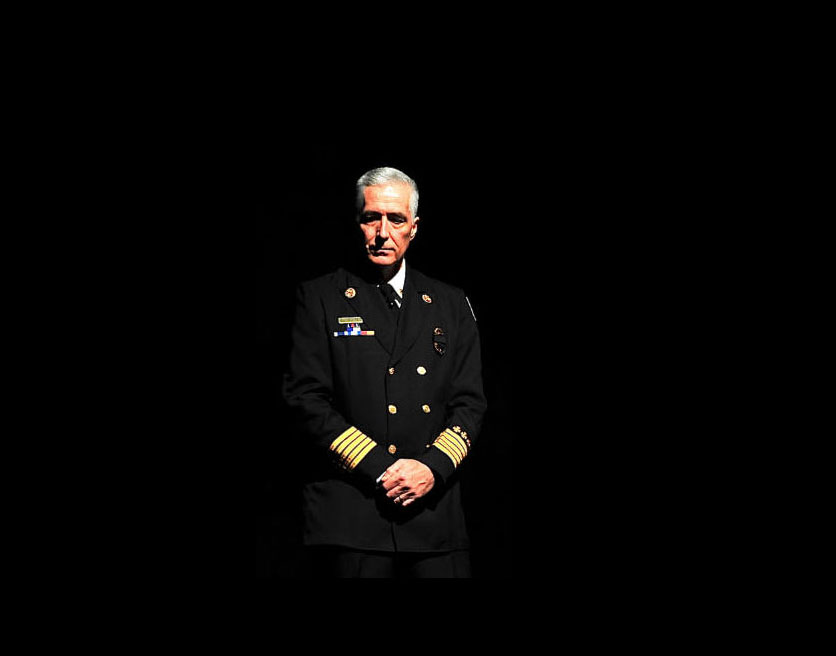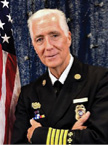
editor’s opinion ❘ By BOBBY HALTON

We get a lot of letters. It comes with the job. Sometimes we publish them and sometimes we just reply privately. In our responses, we hope to always be kind and courteous to the writers and respect their worldview. Where we have differed and where we will always differ is in censorship in any form—“language policing,” “PC culture speak,” or “wokism.” We agree that words matter, but you have a choice as to what words you use; it is called freedom of speech. We do not condone abusive language, but we also do not restrict traditional or common usage expression.
Mao Zedong, the brutal tyrant who crafted Communist China, embraced language control and, as always, it was about “equality”; nope, it is about power. George Orwell in Nineteen Eighty-Four predicted a future in which everyone was controlled because they spoke, heard, read, and wrote only a single, government-approved language called Newspeak. That is not freedom; that is tyranny. We must never fall into the subtle trap of restricting free speech despite what altruistic motives we may have. So, I got a very kind and thoughtful correspondence I would like to share.
Hello Mr. Halton,
Thank you for the time and effort you put into your podcast. I appreciate the attention you bring to the safety operations needed by all ranks of the fire service.
I am writing with attempts for you to consider, especially in this recent time of inequity brought to light, exclusive language used in hosted podcasts and publications and its subsequent oppression, inadvertent deterrent of under-represented groups in the fire service, and ongoing overt exclusion. I do not believe safety, competence, and inclusivity need to be separated. More so, I do believe if all members see inclusion, operations may even be more safely conducted.
One of many examples of exclusive language is the following article in FireRescue: “Considerations of the First-Due Engine Company Nozzleman” (https://firerescuemagazine.firefighternation.com/2020/06/26/considerations-of-the-first-due-engine-company-nozzleman/). I have also listened to guests on your podcast use single-gender terms to describe roles in the fire service. Additionally, your podcast title,“National Fireman’s Journal,” lacks inclusive language.
I perceive from your podcasts that you wish all fire service members to be treated with respect, which, of course, I do not argue. My point to bring forward to you is not all have currently and/or historically had a voice, and continuing with language of the past further drives a divide.
My hope is you can also be a change agent. I am open to further conversation on this issue.
To which I replied:
I am not sure what your interests in firefighting are nor your hopes of being a change agent or what it is you feel needs to change. But we have opined extensively on inclusion, presentism, nihilism, and language. I am not one to curb anyone’s linguistic expression for any reason, and I never ascribe motive to anyone, as I cannot read minds. Nor do I dare try to interpret perceptions—that is a fool’s errand.
As to my choice of title for my personal podcast, if you are a firefighter, you should know where it originates, and I as an historian of the fire service use it in homage to those whose efforts have allowed my profession to be the “greatest example of man’s humanity to man.”
Then this came.
Chief Halton,
Thank you for your reply. My interests in firefighting are to keep my crew safe on the fireground and create a safe and welcoming working environment at the fire station. My hopes are that our career of firefighting can accept gender-neutral language so as not to subtly ostracize women. Additionally, I hoped you would consider the detrimental effects of exclusive language in which you perpetuate. With your influence, I was hoping you would step up to make corrections.
I do know the term fireman, in addition to suppression, means stoking the fire on a steam locomotive, which it was heavily used as for a long period. It also comes from a time in which women and people of color were not allowed in the patriarchal fire service. “Firefighter” strictly and accurately describes our career as members of the fire service. History contains so much that is later seen as oppressive, racist, sexist, and in need of change—language included.
As a long-time member of our profession, I am firsthand well acquainted with members holding an attitude that gender, race, and sexual orientation don’t matter as long as the training, service, etc. given meets or exceeds the standards of the job. This can also be equated to someone saying they are “color-blind,” referring to seeing past skin colors, which does not take into account the struggles a person of color has encountered. Gender has a similar line.
Cohesion comes with, among other factors, respect, which includes listening to another’s perspective, using inclusive language. A proximity relationship to a person of color or woman in the fire service is not an excuse to keep the status quo of the dominant culture. And even if you know a female firefighter with the assimilation mindset that we can all be called “firemen,” that does not make it right or inclusive.
To be clear, “The National Fireman’s Journal Podcast” pays homage to the original title of this publication from 1877, not railroad workers. To be clear, we do not oppose inclusive language; we use it. We do, however, oppose compelled and prohibited speech. My personal Web site and challenge coin are “Bobby Halton, American Firefighter.” Further, black firefighters are referenced as far back as the 1700s in America, along with women like Molly Williams in 1815 New York City and Pittsburgh’s Marina Betts, a volunteer firefighter in 1820. Race and gender history are far more complex than 50 or 150 years ago, despite what the woke “critical race” theorists claim. We believe the inalienable right to free speech is the way we will heal and grow, not forced speech or compelled speech, and all voices have value—especially those with whom we disagree.

MORE BOBBY HALTON
This Virus Has Made Fools of Us All
“Friends, Firefighters, and Countrymen, Lend Me Your Ears”

